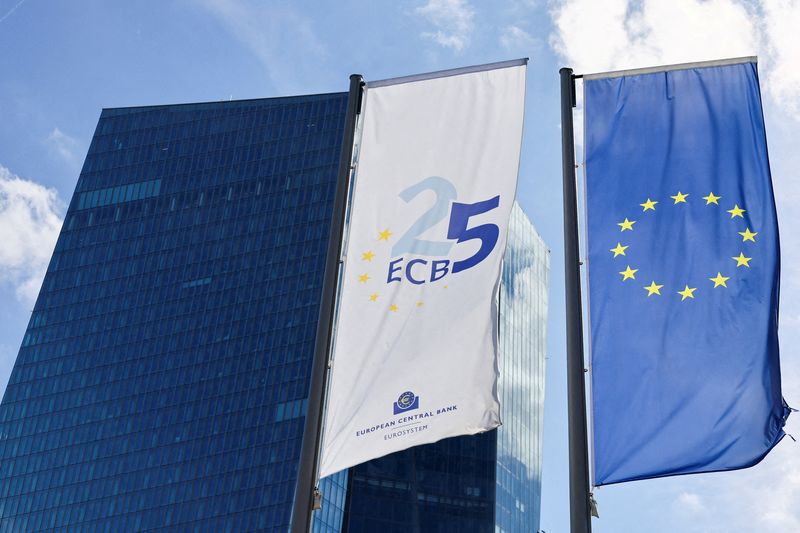By Stefania Spezzati
LONDON (Reuters) - The European Central Bank has asked some banks to closely monitor activity on social media to detect a worsening in sentiment which could lead to a deposit run, two banking executives with knowledge of the request told Reuters.
European regulators have sharpened scrutiny of banks' liquidity after the collapse of Silicon Valley Bank and Credit Suisse in March last year, the people said, requesting anonymity because the discussions are private.
Banks can run into financial trouble if clients rush to pull deposits at the same time. In October 2022, a social media post from a journalist saying that a 'major international investment bank is on the brink', led to a run on Credit Suisse, with clients withdrawing more than 100 billion Swiss francs ($116 billion) by the end of the fourth quarter of that year.
The speed at which clients yanked deposits has triggered a debate globally on whether, under the current regulation, institutions can withstand sudden liquidity shocks, and whether new rules might be needed.
In March, the European Banking Authority, an independent European agency which carries out work in the banking and financial sector, called on relevant regulators to assess risks including social media that could "contribute to a deterioration in the public perception and reputation of the institution".
In response to the ECB's requests which were specific to certain banks in the region, a major European lender has arranged for a team to signal significant volumes of negative posts to the bank's treasury, which will in turn assess any impact on deposits, one of the two executives said.
While early detection might not stop a bank run, regulators and banks are eager not to be caught off guard, according to the people familiar with the regulators' thinking.
A spokesperson at the ECB declined to comment.
"Social media allows information to spread faster but can also trigger or amplify shocks," the ECB said in its financial stability review in November.
The ECB has also stepped up scrutiny of liquidity reporting in recent months, setting the frequency to weekly from monthly.
LIQUIDITY DEBATE
European regulators are also debating whether the assumptions used to calculate the so-called liquidity coverage ratio (LCR), a key indicator that banks use to measure liquidity risk, should be revised, another bank executive told Reuters.
Introduced after the 2008 financial crisis, LCRs require banks to hold sufficient assets that can be exchanged for cash to survive a period of significant liquidity stress.
Regulators are looking at the lenders' individual deposit bases and whether cash can walk out at a greater speed, the executive added.
In Switzerland, authorities and lenders are discussing new measures including an option to stagger a greater portion of withdrawals over longer periods of time, Reuters reported in November.
The banking executives told Reuters that measures which give an idea of how much liquidity a lender can free up in one day may be more effective than LCRs, which assess access to cash over a 30-day period.
Larger banks should be required to prove they are able to quickly access funds over the "ultra-short term," a top U.S. banking regulator said last week.
The Basel Committee on Banking Supervision, which sets standards for the prudential regulation of banks, will analyse if some of its liquidity rules need amending after much faster outflows of deposits during the March crisis, partly due to the impact of social media.

The Financial Stability Board, an international body that monitors the global financial system, is looking at how deposit dynamics have changed and at the role of social media, it said earlier this week.
($1 = 0.8643 Swiss francs)